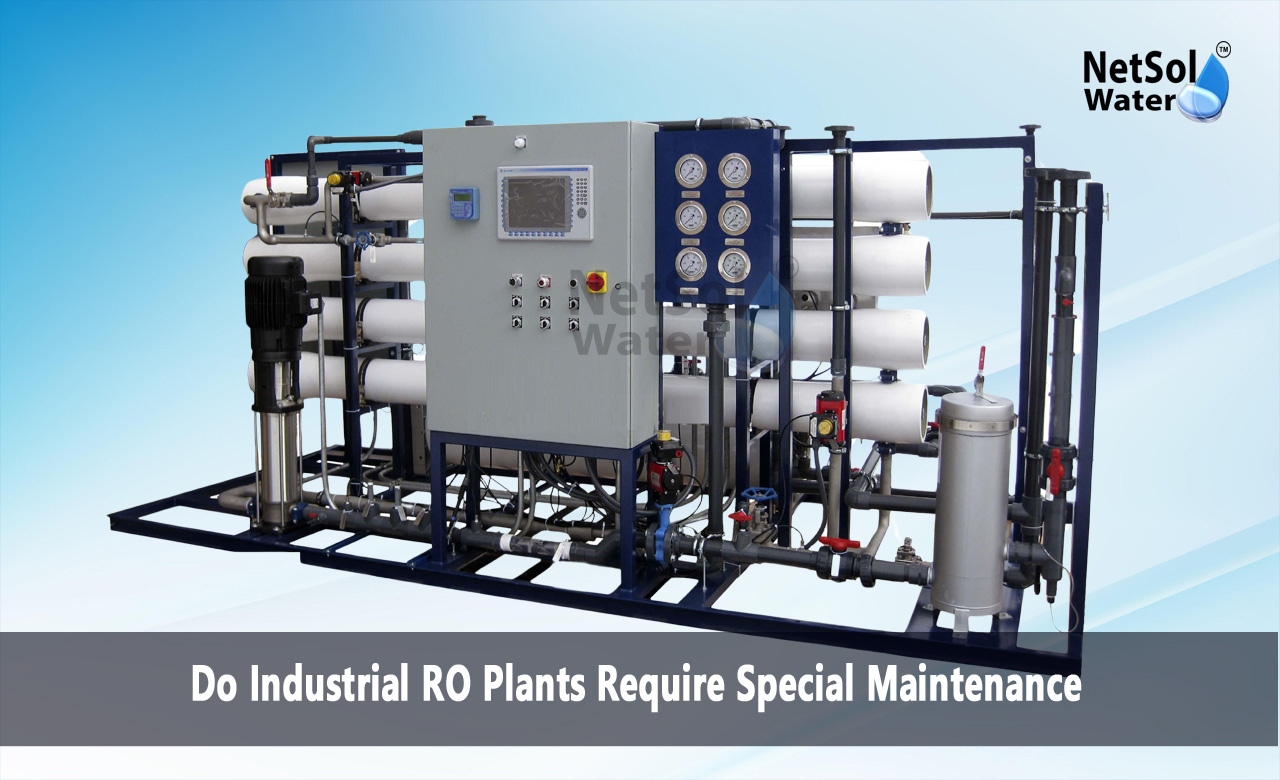Do Industrial RO Plants Require Special Maintenance?
In industries where water purity is a key factor in manufacturing, RO plants have become an essential component of the infrastructure. These plants run continuously to filter out the impurities and provide clean water according to the desired standards. Their smooth functioning, however, is highly dependent upon how well they are maintained. Given their construction and nature, industrial RO plants require special maintenance to ensure that performance rates remain high, minimize breakdowns, and maintain long service. Failing this necessity can contribute to low efficiency, increased expense, and production holdups.
Why Maintenance is Important to Industrial RO Plants?
An industrial RO plant runs on a continuous basis to purify humongous volumes of water. Due to the size and complexity of the system, regular maintenance is required in order to ensure that it is working. Industrial RO plants have unique maintenance as filters, membranes, and parts face high pressure contaminants and chemicals. Prolonged maintenance can result to decline in efficiency by the system and hence heralds higher operating costs and even total system failure.
Key Parameters That Should Always Be Maintained
Certain parameters of an industrial RO plant should make sure that certain maintenance steps never go without a break in the best possible state:
· RO Membranes: With time, the membranes get clogged or fouled by minerals, contaminants, and other waste materials. Continuous washing and, as and when required, replacement of the membranes, should keep the system operational.
· Pre-Filters and Post-Filters: These are mandatory filters to eliminate big particles prior to water coming into contact with the RO membrane. These need to be replaced at regular intervals to avoid any hitches in operation.
· Motors and Pump: The pressure pump running the system must be checked at regular intervals for wear and tear. Regular lubrication and check-up can save the system from sudden failure.
· Pressure Gauges and Flow Meters: They are tasked with measuring the pressure and flow within the system. They must be checked and calibrated every now and then so that they will be in a position to identify any defects on time.
Working with such units on a day-to-day basis, you are certain that industrial RO plants require special maintenanceto be able to run at their best performance.
Frequency of maintenance activities
Industrial RO plant is serviced with disparate frequencies depending on the quality of water, capacity of the plant, and requirement of the industry. Certain maintenance activities done on a daily/weekly basis are as follows:
· Daily/Weekly: Pressure and flow check and any off-normal vibration and noise in the system.
· Monthly: Pre-filter, post-filter, and membrane cleaning and maintenance to avoid fouling.
· Quarterly: Check the routine pumps, motors, and gauges and make sure all equipment is in good original condition.
· Yearly: Replacement of membrane and other end-of-life components.
Scheduled maintenance will have your RO plant running in prime condition, minimizing system failure instances and the resulting expensive repairs.
Industrial RO Plant Maintenance Frequency
Industrial RO plants require special maintenance based on the nature under which they are operating. Industrial RO plants are built to perform high-pressure processes, exposed to different contaminants, and support heavy-duty filtration. Maintenance is necessary to avoid loss of efficiency, which would result in repair expenses and inefficiencies. Failure to maintain these systems can result in poor quality water, high energy usage, and system downtime, therefore maintenance is important for these systems to run at peak levels.
Problems If Not Routine Maintenance
Failure to keep an industrial RO plant properly maintained on a regular basis might result in numerous problems, including:
Less Efficient: Pressure fouled, filters, and membranes could render the RO plant less efficient at filtering impurities out of water, and thus less efficient.
Higher Operating Costs: A less efficient system will need more power to operate, which is a higher cost.
Shorter Equipment Life: Lack of maintenance will result in unnecessary wear and tear of essential components such as pumps and motors, eventually shortening the lifespan of the RO plant.
Compliance-related problems: All the companies using RO plants to water quality regulations have to keep them well maintained so that they remain within the legal compliances. Negligence in maintenance results in legal troubles and fines.
Conclusion
Industrial RO plants require special maintenance since the process is complex and there are strict requirements on their part. Maintenance makes the systems efficient, minimizes downtime, and extends equipment lifespan. Right from the cleaning of the membrane to pump inspection, from filter replacement, maintaining work of cardinal importance is in maintaining your industrial RO plant in its best condition. Through investment in regular maintenance, industries are able to avoid repairs at a cost, improve the quality of the water, and maintain operational efficiency.
Do you need an advice or assistance on selecting the best water and waste water treatment unit? We have solutions for all your problems!
Let us know your problem, our experts will make sure that it goes away.
For an assistance or related query,
Call on +91-9650608473 Or write us at enquiry@netsolwater.com



